Text
10 Home Remedies for Bug Bites That Actually Work
0 Home Remedies for Bug Bites That Work | All-Natural Skin Soother
Skip to main content
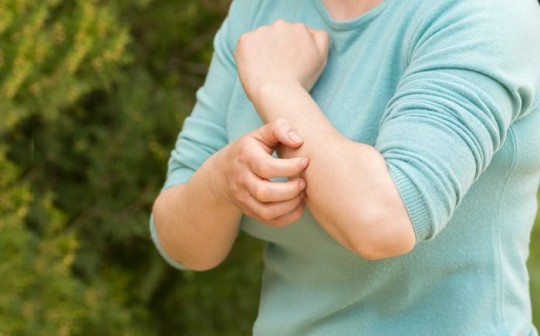
Getty Images/Cunaplus M.Faba Simple techniques to stop scratching
Summer offers a lot of exciting things, including pleasant temperatures, long days, outdoor barbecues, and plenty of sunshine, but one unappealing aspect of sunny nights spent on the patio is mosquito bites. Depending on what bit you, these bothersome, itchy, and occasionally painful skin lesions might vary, but they’re all horrible in their own special way. Although you should try to avoid being bitten by these pests by using bug zappers and mosquito repellents, bites can still occur. However, you don’t have to stoically endure it while rubbing your flesh raw. In fact, using a few clever (and simple!) home cures, you can quickly stop the itch.
According to Monisha Bhanote, MD, a triple-board-certified physician who specializes in integrative medicine, “the basic premise is that when an insect bites, it releases its saliva into the epidermis, causing the skin to have an inflammatory response with localized itchiness from the release of histamine and other biologic chemicals.” The finest post-accident remedies, unless you’re having an allergic reaction, will counteract that reaction by calming skin, lowering inflammation, and even preventing infection.
Better still? You don’t need to worry about applying possibly harmful chemicals on your skin because the suggestions on this list are entirely natural. Purchase many so you always have these on hand. And avoid this problem altogether by surrounding yourself with mosquito-repelling plants and learning a few more organic bug-repelling techniques.
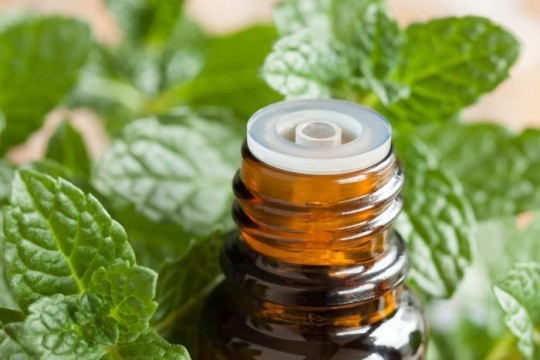
Getty Images/Madeleine Steinbach essential oil of peppermint
This tasty essential oil also works as a pain reliever for insect bites. Its cooling effect on the skin balances out the stinging, burning, and itching. Additionally, according to David Friedman, ND, a clinical nutritionist and doctor of naturopathy, peppermint has anti-inflammatory and antibacterial properties, which means it may help prevent infection. In addition, peppermint can help avoid getting bitten by insects in the first place. Dr. Friedman claims that spiders, fleas, flies, wasps, and mosquitoes all detest the scent of peppermint oil.
Dr. Friedman cautions against using peppermint oil directly to the skin because it may result in burning and stinging, regardless of whether you’re using it as a home treatment for bug bites or as a preventative step. Instead, he advises combining it with a carrier oil, such as coconut or jojoba. Before applying it to your skin, he advises, “use five drops of peppermint oil per ounce of carrier oil.” By adding water to a spray container, you may also generate a diluted spray by combining three drops of essential oil and four drops of carrier oil per ounce of water.
Shop Now
Lavender essential oil
If you’ve ever inhaled deeply of lavender, you are aware of how peaceful it can be. It soothes your itchy, irritated, and infected skin just as well. According to Melanie St. Ours, a clinical herbalist and the author of The Simple Guide to Natural Health, “lavender essential oil can help reduce itching and inflammation within minutes of application. It is renowned for its ability to soothe inflammatory skin conditions — including minor burns, wounds, and acne.” She advises picking a product like this one from Orchid & Temple that is made entirely of French lavender grown at high elevations. Directly apply one to two drops to the affected region, and repeat as necessary. If you’ve ever wondered why you never see mosquitoes in Disney World, here’s your answer.
Shop Now
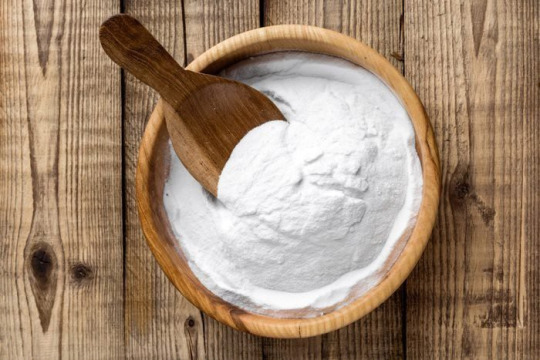
ivandzyuba/Getty Images Baking soda
Since baking soda is so gentle, it’s a fantastic home cure for bug bites on both adults and kids. Baking soda is a genuine multi-tasker since in addition to enhancing the flavor of your food, it also soothes inflammation and itching. Olivia Rose, ND, a naturopathic physician in Toronto, suggests mixing 1 tablespoon of baking soda with water to create a paste. Apply the paste to the insect bite, let it dry, and then wipe it off with a cool washcloth, she advises. “Add 1 cup of baking soda to a bath of neutral temperature if you happen to be covered in bites.”
Shop Now

Madeleine_Steinbach/Getty Images Echinacea liquid extract
For good reason, this natural cure has been a mainstay in people’s medicine cabinets for decades. The echinacea plant, a member of the daisy family, produces echinacea as a liquid extract. Everything from curing colds and relieving sore throats to halting infections has been done with it. Apply echinacea tincture to the entire affected region every hour until the swelling is gone, advises St. Ours, if you find that the area around your bite is turning red, hard, and swollen. “Use at least a quarter of a teaspoon of tincture every application, patting it into your skin with your fingertips. She advises calling your doctor right away if the swelling does not considerably go down after 24 hours of regular use or if you ever start to feel feverish.
Shop Now
Ice
For a number of ailments, including bug bites, ice can be oh-so comforting. According to St. Ours, there are two reasons why this straightforward treatment relieves itchiness, edema, and general discomfort. The nerves that were telling your brain, “This is itchy!” change their tune and start telling your brain, “This is chilly!” she explains, because your sensory nerves can only relay so much information to your brain at once. Second, localized edema and inflammation are lessened by the cold.
Keep things from getting sloppy and melty by using a gel-filled ice pack, such as this highly rated alternative from Rester’s Choice. However, you should only do so for a short period of time at a time and use a piece of cloth between your pack and the skin.
Shop Now
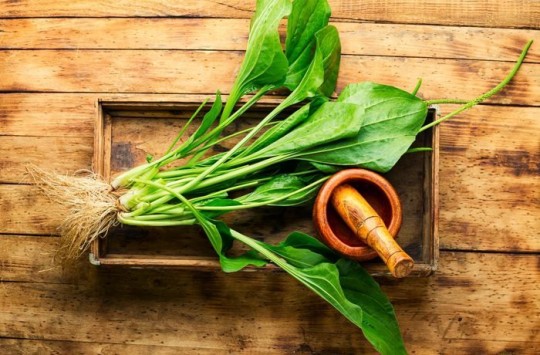
Nikolay_Donetsk/Getty Images Plantain leaves
St. Ours notes that although the plantain that can treat insect bites has the same name as the starchy fruit related to a banana, it is a completely different kind of plant. It’s a widespread weed that thrives in compacted soil, so it’s frequently simple to locate in playgrounds, hiking trails, and even growing next to the pavement in cities, according to the expert. “The vertical veins that run down the leaves of plantain species are arranged like a circle of ‘rays’ emerging from a central point. This plant is a common component in healing salves and ointments because of its amazing wound-healing properties.
Dr. Friedman advises using a mixture made of plantain leaves, bentonite clay, or activated charcoal, and water immediately to the insect bite for quick relief. If you don’t have these additional ingredients, you may also produce a paste by blending or grinding 1/2 cup of dried plantain leaves with just enough distilled water, the expert advises. “Apple cider vinegar can also be used in place of water. Grind it until it is a thick, but not too watery, consistency before applying it straight to the skin.”
Shop Now
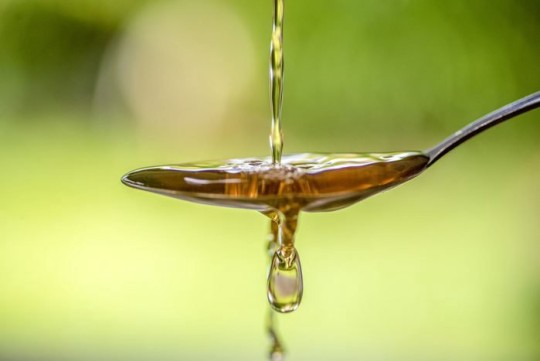
boonchai wedmakawand/Getty Images Vinegar
Honey may attract more flies, but vinegar also works well! According to Bernard Buttone, manager and associate certified entomologist at Triangle Pest Control, “vinegar can relieve stinging or burning sensations and is a natural disinfectant, especially if you’ve been scratching a bite.” He advises placing a washcloth or absorbent paper towel to the bite for a few minutes after soaking it in cold water and vinegar. If you have several bites from a mosquito feast, add 2 cups of vinegar to a warm bath and soak for 15 to 20 minutes, the expert advises.
Shop Now
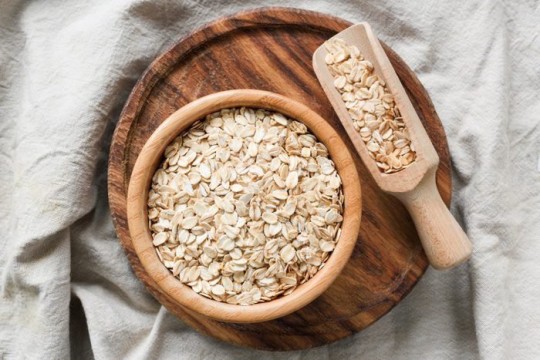
Arx0nt/Getty Images Oatmeal
You most likely have this substance in your cupboard, but you might not have known that you could apply it on your body. It turns out that oatmeal is one of the greatest natural cures for bug bites since it has skin-healing, skin-moisturizing, and antioxidant characteristics. According to Amy Lawhorne, vice president of the pest control business Mosquito Squad, “Oatmeal helps soothe itching and minimize swelling, which is exactly why you need it after getting bit or stung by something.” Simply make a paste out of oatmeal and water, she advises, and apply it directly to the bite. “Wipe it off after 10 to 15 minutes of letting it sit.”
Shop Now
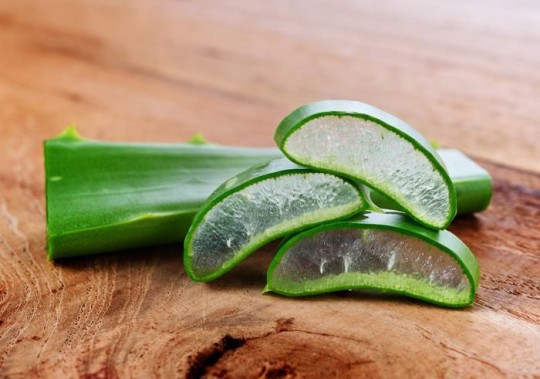
nipapornnan/Getty Images Aloe vera
Few people are aware that aloe can also lessen the sting and itching of bug bites, despite the fact that it is well recognized for soothing sunburns. According to Dr. Rose, the cooling effect of aloe vera gel when applied directly to the bite will assist minimize itching and swelling. If you already have a mature aloe vera plant at home, that’s great, but you can also buy aloe vera gel, which works just as well. If you have pets, buying aloe vera gel is a particularly smart choice. Aloe is one of the houseplants that are harmful to cats and dogs.
Shop Now
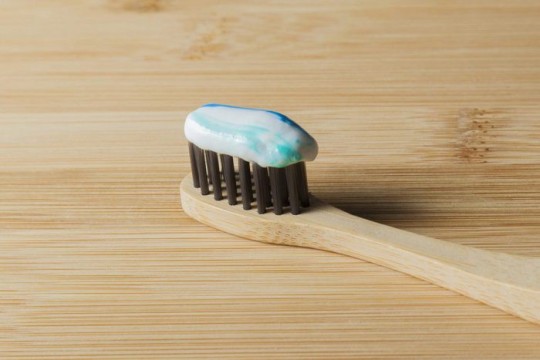
GideoniJunior/Getty Images Toothpaste
Apply a little toothpaste on a mosquito bite to alleviate the intense itching! Buttone explains that when a mosquito bites you, it emits an anticoagulant that allows it to feed covertly. You itch and the bite mark grows because of your body’s normal response to that anticoagulant, which is to produce histamines and deliver them to the bitten area. In order to take advantage of the soothing and calming effects of mint, he advises applying minty toothpaste directly to the bite. He continues, “Toothpaste is also naturally astringent, so it can stop additional swelling. Check out these chemical-free methods to get rid of domestic bugs now that you are knowledgeable about all-natural, at-home treatments for insect bites.
1 note
·
View note